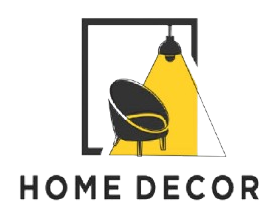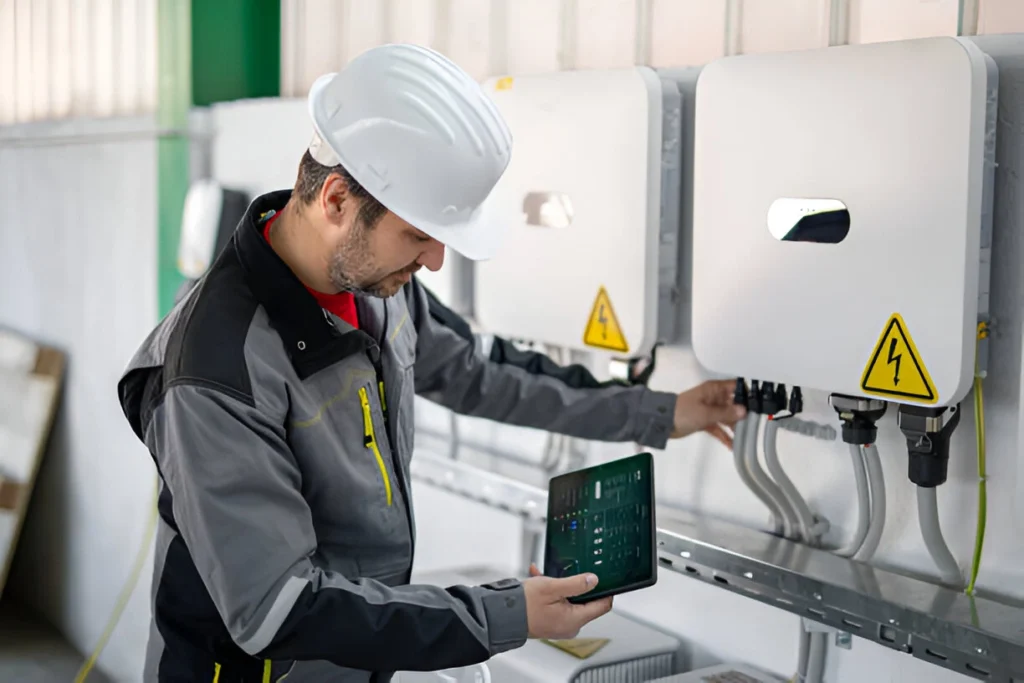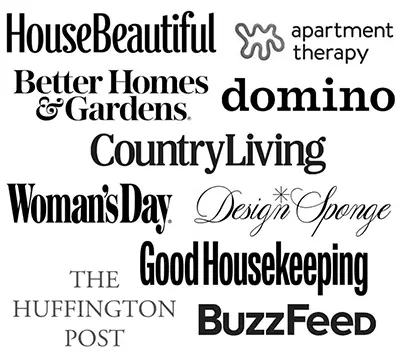Smart home installation business
In today’s digital-first world, our homes are more than just places to live; they’re becoming responsive ecosystems to our voices, preferences, and behaviours. The Internet of Things (IoT), Artificial Intelligence, and connected devices are everywhere, and with them, the notion of the “smart home” has gone from a luxury to a necessity for many.
As more Americans discover the joys of movements like home automation, which promises revolutionized energy savings and improved problem-solving, demand for skilled tradespeople in this field is on the rise.
The surge of interest in smart technology creates a window of opportunity for business owners and technicians. If you’re the kind of guy who’s completely on top of all new tech and wants to start your own business, or if you’re a general contractor who wants to expand your business, then the smart home installation industry would be the perfect next move for you.
We’ve decided to unpack everything you must know before you start, run, and grow your own smart home installation business in the U.S. It is a full-fledged guide that provides market trends, required skills, tools, price strategies, and we also share some exclusive insights that will facilitate your journey to success.
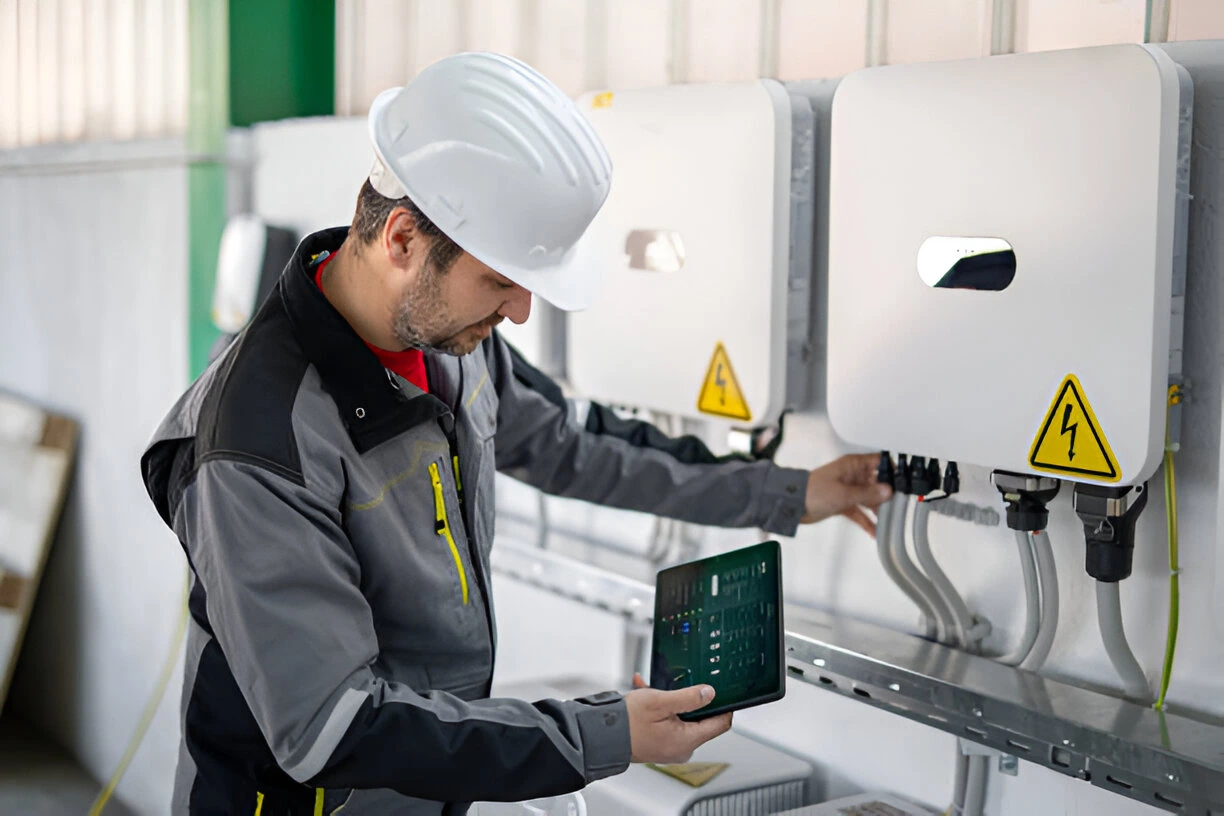
The U.S. Smart Home Industry Comes of Age
The smart home installer industry has evolved from obscurity into one of the hottest industries in the United States. In the age of the Internet of Things (IoT), home automation is not the stuff of a distant future; it is a growing reality for thousands of American households.
From thermostats and lights to home security products, smartphones and tablets are becoming our interface to the devices that keep us healthy, safe, and comfortable in our own homes.
A Growing Need for Smart Home Installers As the concept of convenience and comfort fans beyond the popularity of a smartphone or entertainment-centred remote, more and more Americans have become interested in having smart home services professionally installed. Wi-Fi routers and smart TVs are no longer enough.
They don’t want some insular Internet of Things that gives them only limited control of their home environment from their mobile phones or with voice commands. Industry titans such as Amazon, Apple, and Google have only further opened up their walled gardens, and consumers have come to expect plug-and-play integration with little or no configuration.
Why it makes sense to start a TN Home Automation Services business
5 Benefits of Starting a Smart Home Installation Business. There are numerous good reasons why a smart home Installation Company might be a great business to start and operate. For one, it’s a rapidly growing market expected to exceed $200 billion worldwide by 2027. The smart home penetration currently has a 34% average increase, even in the U.S., which makes it a good catchall for tech-savvy entrepreneurs. Statista reports that smart home technology will be installed in more than 63 million U.S. households by 2025.
And, the business model is very scalable. Whether starting as a solo contractor or expanding to work with a team, you can niche your services to suit different clients. With simple DIY smart doorbell and thermostat installs to full-blown home automation systems, you have a lot of growing options.
In addition, homeowners appreciate professionalism. A lot of them are not technically savvy enough to set up and configure it on their own. This drives a requirement not just for deployment, but for consulting, design, and post-sales.
A smart home installation business can differentiate itself in a competitive landscape through dependability, customer training, and added services.
Trends That Are Shaping the Future of Smart Home Demand
Smart home tech isn’t just about convenience. It’s deeply connected to sustainability, security, and health care. The emergence of smart energy systems, including solar-integrated energy storage and smart HVAC systems, has prompted green-minded consumers to embrace smart technologies.
There’s also a growing demand in the U.S. because of the aging population for smart health monitoring devices, voice-controlled systems, and automated emergency responses. Baby boomers are increasingly asking for technologies that will allow them to age in place safely.
There’s also been an added boost thanks to the work-from-home trend, with smart home features, especially in home office areas, advanced networking systems, and AI-driven virtual assistants all pulling their weight.
Primary services you can offer in a smart home installation company
The most successful smart home outfit will usually do a little bit of everything, from consultation to sourcing the gear to installation to the integration of systems. Here’s how these services typically break down:
Consultation and Design
Customers need direction before they install anything. A smart home professional assesses the structure, technology, and lifestyle of the customer. This contributes to identifying which systems are suitable and how they can be combined in an efficient way.
Recommendation and Procurement of Equipment
Professionals assist clients in selecting the right products according to compatibility, budget, and performance. That could be a walled garden, like a smart thermostat like Nest, a security system like Ring, or something like Arlo, a smart lock like August, or an inclusive hub like Samsung SmartThings or Apple HomeKit.
Installing and Configuring
This is the business’s technical spine. That entails installing gadgets, hooking them to the home network , and creating integrations between platforms such as Alexa, Google Home, or Siri. Cross-platform compatibility with the increasingly widely adopted Matter protocol means set-up is straightforward.
Training and Support
While the system is in place, homeowners frequently must learn how to use their equipment in person. Providing continued assistance means long-term customer satisfaction and leads to maintenance agreements or system updates. Offering digital user manuals, YouTube tutorials, or even in-office guided tours of your product can help increase user retention.
Skills and Certifications Needed
Though the industry doesn’t require a formal license in all states, being certified can add a lot of credibility to your services. Industry certifications (for example, CEDIA certification or CompTIA Network+) on your resume could make you more appealing to high-end clients.
Knowledge in the networking, electrical, and home-building industries is necessary. Just as crucial are soft skills like communication, project management, perhaps even more when working with tech-not-savvy clients.
There are vendor-specific trainings also offered in automation platforms such as Control4, Lutron, and Crestron. “As interop becomes important, knowing how to integrate with these types of things gives installers a competitive advantage.
Gadgets and Gizmos for Transforming Your Home into a Smart Home
More than a screwdriver and a Wi-Fi password are required to make a living installing smart homes successfully. Common tools include:
- Cable testers and network analyzers
- Smart device configuration applications and tablets
- trestle ladders, bits, and attachment kits
- Signal strength meters and heat-mapping tools
- Labeling machines and Zip tie organizers
Also, the purchase of a customer-relationship-management (CRM) system that can oversee appointments, invoices, and client communications. Housecall Pro, Jobber, and ServiceTitan are popular in field services.
Target Market and Target Customer Segmentation
The demographic for smart home installation includes a broad range of consumers. Younger homeowners in tech-savvy cities like San Francisco, Austin, and Seattle are early adopters by nature. But there’s an increasingly large group of seniors who want to jump on the smart tech bandwagon for health-monitoring and simple convenience.
Whole-Home Automation: Who Is Most Likely to Invest? High-income homes, Tech fanatics, and millennial homeowners are most likely to embrace whole-home automation. Middle-income customers, meanwhile, could begin with budget models like smart plugs and work up from there.
Real estate developers and property managers are other major customers. They are becoming standard in new residential developments with a continuous demand for volume installations and system integration.
Marketing Your Smart Home Setup Business
It is also important for drawing customers to your practice. A mobile-friendly, local SEO optimized website can mean the difference between getting business and not. Optimise for search engines, rank higher on Google when you are optimised for specific keywords such as “smart home installation near me” or “home automation services U.S.A.”
Platforms like Instagram, YouTube , and TikTok may feature before-and-after transformations, how-to videos, and client testimonials. If well-targeted, paid advertising through Google Ads or Facebook can see a very good ROI.
When it comes to nurturing leads and keeping clients informed about new services, software updates, or discounts, email marketing and CRM tools might be just right for your business. Use retargeting so visitors come back and buy until you’ve converted them.
You can also network with real estate agents, interior designers, and builders to receive referrals in the long run. Offering the professionals who participate in a sharing economy as affiliates or getting a commission with them is yet another smart idea.
Price Offering & Business Model
Price is based on the level of service complexity, equipment type, and regional location. Plenty of smart home installation companies tier their packages. For instance:
- Package 1: 2 to 3 devices installed
- Standard package: Comprehensive, compatible with voice assistant
- Premium Package: Full home automation with security & climate control
Some firms also provide maintenance contracts, system audits, and upgrade services, which produce income continually.
Subscription plans are beginning to gain traction, with users paying a monthly fee for support, software updates, and diagnostics. Financing or pay-over-time options can also help make premium services more affordable.
One other possibility is to look into white-label installation partnerships with tech brands or big-box retailers that sell the hardware and need installers to hook it up.
Regulatory Aspects and Insurance
Though the licensing requirements differ by state, as a general rule, general liability insurance is necessary to guard against any potential accidents or damages. Some states also require an electrical contractor license for jobs that involve extensive wiring.
Also, be sure to comply with local building codes and privacy laws, particularly when installing cameras or surveillance systems. Always tell homeowners where footage is stored and how it’s accessed.
But, employee background checks (especially with small children and elderly populations), secured data practices, and NDAs can boost client confidence and mitigate liability.
Pain Points in the Smart Home Install Business
Crucially, the growth does not come without challenges. Tech changes fast, and workers need to keep up with developments in standards, protocol, and platforms. Device compatibility varies, which can also be a pain for both the installer and user.
Furthermore, the DIY segment is growing, with some homeowners choosing to install rudimentary systems themselves. This has forced professional installers to provide superior service, customisation, and post-installation service to prove their worth.
Availability on account of chip shortages or supply chain disruptions can also impact scheduling and inventory. Risk of this type can be reduced (but never eliminated) by developing relationships with several suppliers and operating with a lean but flexible inventory.
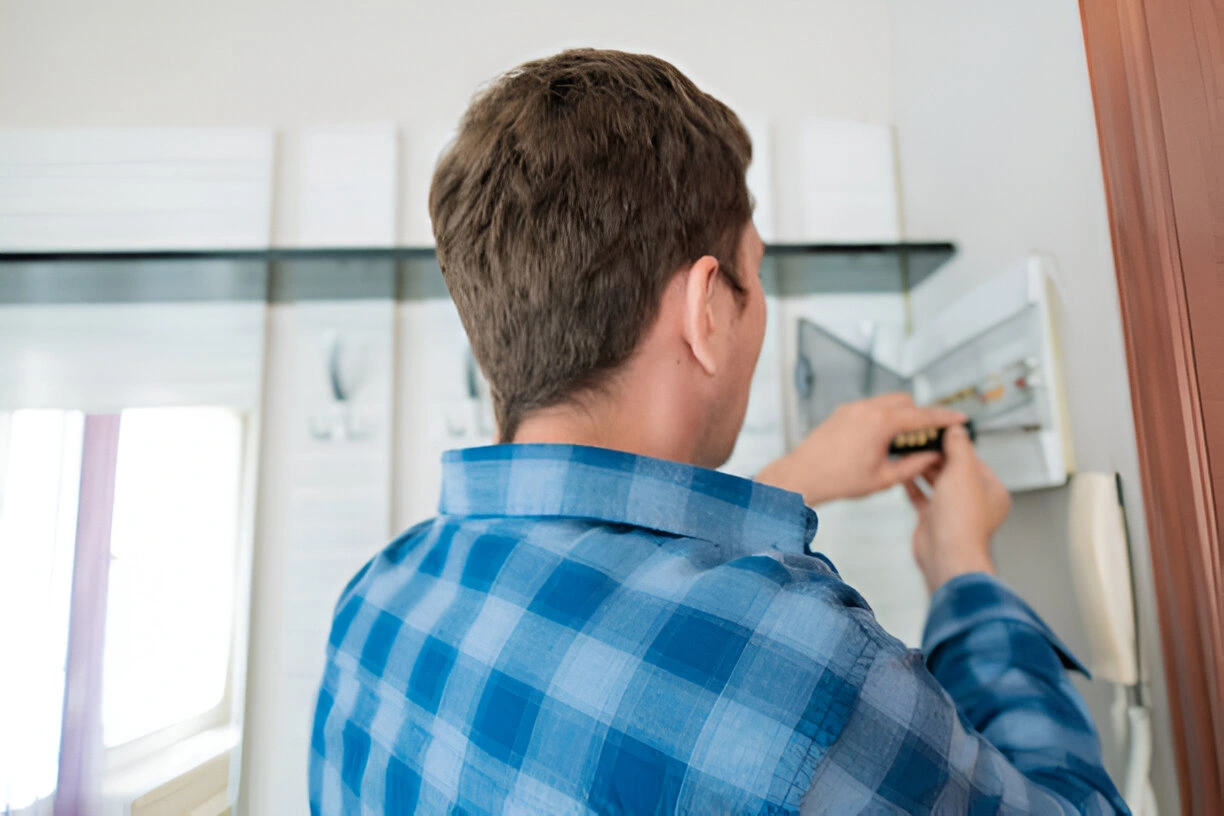
The Future of Smart Home Installations
In the coming years, the smart home installation industry is expected to expand in the wake of the proliferation of AI, machine learning, and sustainable tech.
There will be more interconnection of devices, and homes will be smarter, learning our patterns to optimize lighting, heating, and possibly even grocery shopping.
We can also expect advances in voice recognition, facial recognition, and other biometric means to enter the home. Next-generation automation may soon include monitoring household air quality, offering health advice, and engaging with a doctor’s office.
Installers will have to transform themselves from technicians to smart home consultants who provide tailored experiences and flexible solutions that can adjust as homeowners’ needs and technologies change.
FAQs
What is a smart home installation company?
A smart home integrator company that assists homeowners in bringing smart devices (lights, locks, thermostats, security, voice assistants) together for an intelligent home automation solution. And these pros handle consultation, finding the equipment that meets your needs, configuration of that equipment, and the support you need post-installation.
How lucrative is the smart home installation business?
It is already a lucrative business, especially with the market estimated to explode in the next few years. Many can make sustainable high margins by including tiered services, continual support, and adding value-consulting when they scale using long-term contracts.
Do I require certifications to get started?
Though not mandated by law in every state, credentials like the ones offered by CEDIA or CompTIA lend the sort of credibility and trust that can open more doors. They’re particularly useful when working with high-end customers or on complicated installs.
How should I price smart home installation?
Pricing: It depends on location, the complexity of a project, and many devices. Simple installations could start at $200, while complex systems could range into the thousands. It's paramount to investigate local competition and service costs to position competitive, yet profitable prices.
May I conduct business from home?
Absolutely. A lot of smart home installation services start out as home-based businesses. But you’ll need a way to get your tools and equipment to work sites, and a professional online presence to attract clients.
What kinds of smart home gadgets are clients asking for most often?
And people regularly ask for smart security cameras, video doorbells, smart locks, connected lighting systems, thermostats, and voice assistants. More and more homeowners are also requesting leak detection, air quality monitoring, and appliance automation.
Is it a challenge to stay relevant with technology that changes so quickly?
Technology moves quickly, but educating yourself, reading industry newsletters, attending events like CES, and networking with vendors are a few ways professionals can stay up to date.
Conclusion
Launching a smart home installation business in America is a smart business move because the future looks bright: consumer demand is increasing, and the technology is evolving.
It marries technical know-how with culturally competent customer service, empowering professionals to build safer, smarter, and more convenient homes for the rest of us.
With the proper blend of skills, tools, and marketing, you can create a successful, scalable business that works in both urban and suburban markets. Once it does, we’ll see even more ways to make smart connections between people and the smart homes they live in.
It’s time to start investing in knowledge, positioning your brand, and providing unparalleled customer experiences in one of the most exciting tech frontiers available right now.
